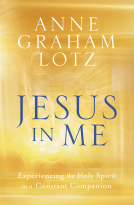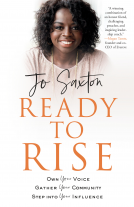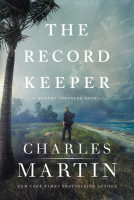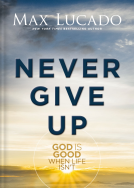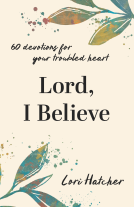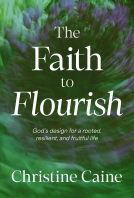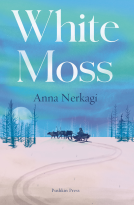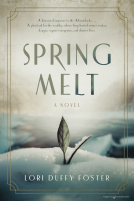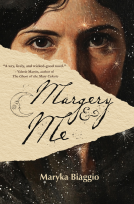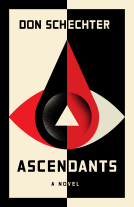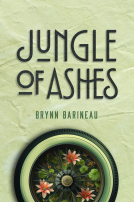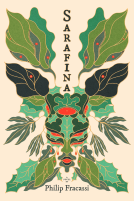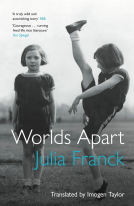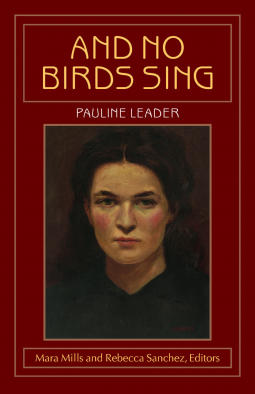
And No Birds Sing
by Pauline Leader
This title was previously available on NetGalley and is now archived.
Send NetGalley books directly to your Kindle or Kindle app
1
To read on a Kindle or Kindle app, please add kindle@netgalley.com as an approved email address to receive files in your Amazon account. Click here for step-by-step instructions.
2
Also find your Kindle email address within your Amazon account, and enter it here.
Pub Date Oct 28 2016 | Archive Date Apr 30 2017
Description
This edition is accompanied by a new introduction and afterword that provide a scholarly framework for understanding Leader and her times. She persevered and became a published poet and novelist, often drawing on the experiences offered up here. Compelling and evocative, And No Birds Sing deftly reveals a complex, intelligent spirit toiling in a brutal world. From the book:
I insisted to myself that I could still hear. I heard in my mind the sounds of streams as I passed them. I knew the sound the river made, that river that I had known always, the river by the marble house. In my mind the river washed with a low intimate sound. I had no need to hear as the people heard. True intimacy needs no ears. I knew the sound of birds; I heard them as they hopped about. I knew the sound of words also. It was words that I most intensely heard. I had not always the river and the birds—they appeared far away at times. I did not always want river and birds, but I always wanted words, and I always had them. I would have been terribly lonely without them. With them always in my mind, I could not be truly lonely. I played with them; I set them to music; I achieved endless variations with them. They were never weary, as other things could sometimes be weary.
Available Editions
| EDITION | Other Format |
| ISBN | 9781563686689 |
| PRICE | $34.95 (USD) |
Links
Average rating from 6 members
Featured Reviews
 Fran E, Reviewer
Fran E, Reviewer
In her memoir "And No Birds Sing" written in 1931, Pauline Leader described her helpless existence of being "doubly different" from other people and how her poetry and strength of spirit elevated her despite her ethnicity and disability.
Pauline was born to immigrant parents from Eastern Europe, the eldest of six children. Her mother, the breadwinner of the family, ran a profitable market despite her inability to read and write English and worked back breaking, long hours. Pauline's lazy father was physically abusive while her mother was verbally abusive. Spirited Pauline has a disobedient streak causing her parents to threaten to send her away to a reformatory for misbehaving. One year for her birthday, Pauline unwrapped a present only to find a pair of her father's old shoes. The Leader family laughed at the joke. Pauline threw the shoes at her father.
At age 12, Pauline lost her hearing as a result of meningitis. She loved to read but the world closed in around her. Her mother, now ashamed of her daughter, threw Pauline's books behind the refrigerator and in the winter months hid her coat, hat and shoes confining her to the house. She embarked upon a crusade of self-education helped by a washed up lawyer who rented a room from the Leader family. He lent her books and taught her the use of a typewriter. Additionally, she corresponded with a poet who corrected her poems, sending helpful feedback. Sometimes his letters were intercepted by Pauline's jealous parents. Looking inward to her creativity, her love of poetry, her imagination became her comforter.
Pauline was now shunned and laughed at. As a Jew, she did not attend church and felt singled out for not having a clean dress to wear on Sundays. As a deaf child, she was treated as though she could not do anything or learn anything. She referred to the hearing world as "fish mouths" since she could not lip-read. How could she find her place in such a hostile world?
Pauline seemed to inhabit a separate, unequal universe. It was difficult to view her struggle for some degree of normalcy. As a society, our view of disabilities and differences has changed. Reformatories and institutions have been replaced by special education with the hope of tapping into every child's true potential. We have a long path to travel to be all inclusive.
"And No Birds Sing", although written in 1931 by Pauline Leader is still very timely. The emotions and feelings expressed by Leader were heartbreaking and difficult to read. I would like to see this book become a standard read for special education educators.
Thank you to Gallaudet University Press and Net Galley for the opportunity to read and review "And No Birds Sing".


